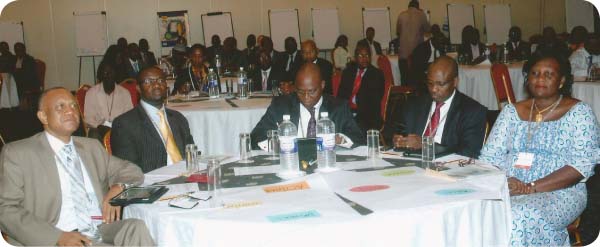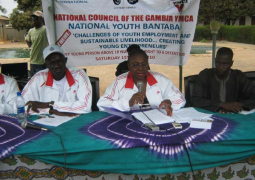
Mrs Savage-Samba made this statement yesterday at a one-day regional Business Forum held at the Kairaba Beach Hotel by SWIFT, a South African-based firm specialising in providing swift and optimal business products and services in the African region and beyond, in collaboration with the Central Bank of The Gambia (CBG).
Orgsanised for central and commercial banks in the West African Monetary Zone (WAMZ), the Business Forum, the third in the West African region, brought together policymakers, regulators and senior bankers from the WAMZ region to discuss how regionalization will work for their business.
Delegates dilated on topical issues such as WAMZ Regulation: operating under the same regulatory framework; Nigeria – the Road to success and PSV2020; Securities Market Infrastructures: the next frontier, and SWIFT Product and Services.
“The forum under the theme ‘Unleashing growth through regional harmonisation’ is taking place at the time when significant progress has been registered in the quest to establish a second monetary zone, the West African Monetary Zone (WAMZ),” the CBG Deputy Governor said.
She also noted: “The WAMZ Payment System Development Project is a shining example of a successful regional undertaking which is critical to the establishment of a durable monetary union and the development of the financial sector. By enhancing the efficiency of payments, processing and funds transfer, a harmonized payments system spurs investment, trade and economic growth.
“Additionally, the zonal Real Time Gross Settlement (RTGS), once seamlessly interfaced with SWIFT, would ensure safe transfer of funds among WAMZ member countries.”
To ensure the harmonized payments system operate in a stable, efficient and proper manner, and to prevent and mitigate risks, Mrs Savage-Samba said, “a harmonized payments system law is to be adopted”by all WAMZ member countries.
“Remarkable strides have been made in building the capacity of both the West African Monetary Institute (WAMI) and the member central banks on regulation and supervision of national and transnational payments systems,” she noted, saying: “In our quest to establish a durable monetary union, there are useful lessons from the European Monetary Union.”
Despite the current crisis, she stated, the European single currency is by “no means a disaster as some may want to believe”.
“It has met its main goal of price stability,” she remarked, saying similar lessons learnt from the recent financial crisis reveal the need for regulatory reforms.
The modernized financial services within the West African sub-region must be supported by a robust regulatory framework, if the full benefits of such systems are to be realized, the deputy governor added.
“Cooperation and regional integration are needed if the region is to make its mark on the global scene,” she said. “We need to open the borders, eliminate the checkpoints and allow for free movement of people and goods.
“We owe it to ourselves and to our young people that in the not-too-distant future the region would be fully integrated to the benefit of all.”
SWIFT, as a token of the usual demonstration of their corporate social responsibility, donated €2,000 to the SOS Children’s Village of The Gambia.
Christian Sarafidis, head of WEMEA/SWIFT, Hugo Smit and Francois Ameguide represented SWIFT at the forum.
Read Other Articles In Article (Archive)



